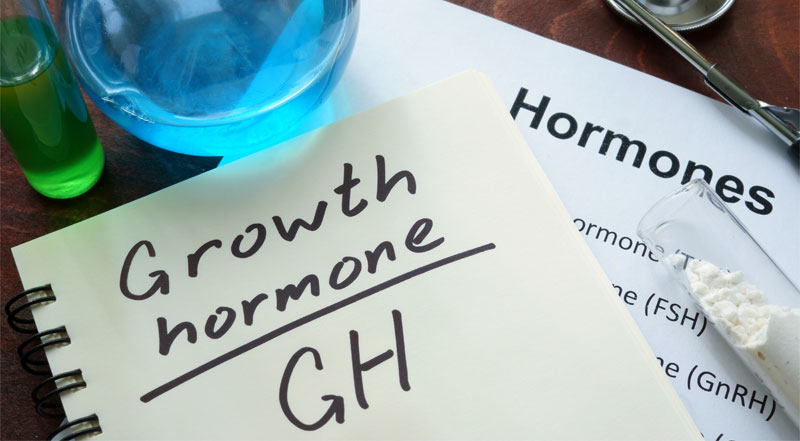- Home
- Growth Hormone
- Growth Hormone
- Growth Hormone Deficiency
- Growth Hormone Therapy
- Growth Hormone Injections
get startedThe Most Effective Hormone Replacement TherapiesNew Study Finds That Stopping Growth Hormone Could Lead to Obesity
Growth Hormone, also known as somatropin, is used to treat children and adults who have a growth hormone deficiency, or GHD. One condition that is known to cause GHD and abnormal growth in children is Prader-Willi syndrome.
Prader-Willi syndrome (PWS) is a genetic disorder that is characterized by poor muscle tone, failure to achieve growth milestones, and delayed development. Patients with PWS also develop an insatiable appetite. That uncontrollable eating, along with the lack of muscle tone and other metabolic issues, often leads to obesity in patients with Prader-Willi.
Growth hormone therapy has been shown to be a very effective treatment for patients with Prader-Willi, as it addresses both the lack of muscle tone, as well as the growth and metabolic issues. By increasing metabolism and muscle tone, growth hormone can counteract the body composition issues caused by the increased appetite in patients with PWS, and helps to prevent obesity in such patients.
In patients with PWS, growth hormone therapy is usually stopped once the patient has reached adulthood, and achieves his or her full height. However, a recent study indicates that stopping growth hormone therapy leads to obesity in these patients.
Details of This Study on Growth Hormone and Obesity
The study was published in the Endocrine Journal. The Japanese researchers followed several PWS patients that began HGH replacement therapy at around 5 years of age, and were taken off of growth hormone therapy at around 18 years of age. The researchers found that after a period of about six-months after stopping growth hormone injections, the patient’s body mass index (BMI) increased by as much as nearly 40%.
The largest increases in fat was seen in the abdomen and internal organs, known as visceral adipose tissue, or VAT. “VAT accumulation is known to be more harmful and contribute more to obesity than fat that accumulates beneath the skin, or subcutaneous adipose tissue, or SAT,” said the researchers.
The researchers also found that cessation of growth hormone therapy led to an increase in LDL (bad) cholesterol. High LDL cholesterol is a precursor to diabetes and obesity. Overall, the team concluded, “discontinuation of HGH therapy caused rapid increases in visceral adipose tissue and LDL cholesterol levels.”
The results of the research indicates that continuation of growth hormone therapy could be beneficial in maintaining healthy body composition in children with GHD, once they reach adulthood.
While this study was not conducted on patients who did not have PWS, it lends credence to the use of growth hormone therapy as a potential treatment for obesity, diabetes, metabolic syndrome, and/or any hormonal imbalance that leads to weight gain and muscle loss.
While growth hormone therapy is not currently approved by the FDA for weight loss, it is prescribed for patients with HIV to counteract the muscle loss typical of the disease. Furthermore, adults receiving growth hormone therapy as part of a hormone replacement program for peak performance and optimal aging, have reported increased muscle mass, fat loss and an overall improvement in body composition and energy.
Other Research Into Growth Hormone Therapy
This is just one example of the current research that is being conducted worldwide into the many positive benefits of growth hormone therapy. We are confident that HGH will soon be the standard of care for the treatment of sports injuries, joint problems, and various metabolic conditions. There is even ongoing research that suggests growth hormone therapy may increase the human lifespan!
From research labs the world over, to the treatment rooms in our own clinics, we are seeing how HGH is changing the lives of many men, women, and children.
Why not contact us today, and see how HGH or any of our other hormone therapies may be able to help you.
- Growth Hormone Therapy


























